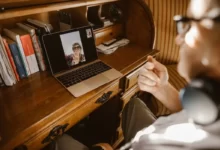Life is a journey filled with ups and downs, joy and sorrow, and various experiences that shape us into who we are. Among these experiences, relationships play a significant role in our personal growth. However, not all relationships last forever, and sometimes we find ourselves in need of closure to move forward. In this blog post, we will explore the concept of closure, why it’s important for our emotional well-being, and how we can find it to let go and embrace personal growth.
Understanding Closure
Closure is the balm that soothes the wounds left behind when a chapter of our lives closes. It’s not about erasing the memories or forgetting the past; it’s about finding a sense of resolution, acceptance, and peace despite the pain. When we lack closure, emotional fragments can remain, haunting our thoughts and sabotaging our present and future endeavors. To illustrate, imagine carrying an overstuffed suitcase everywhere you go; it weighs you down, restricts your movements, and prevents you from taking bold steps into the future. Closure helps us unpack that emotional baggage, freeing us to stride forward unburdened.
The Importance of Closure
- Emotional Healing: Closure is essential for emotional healing. It allows us to process the feelings of sadness, anger, and confusion that often accompany the end of a relationship. Without addressing these emotions, they can manifest as emotional scars, impacting our self-esteem and overall well-being.
- Preventing Emotional Baggage: Unresolved feelings can turn into emotional baggage, affecting our future relationships and life experiences. By finding closure, we can release these burdens and avoid projecting our past onto our future.
- Opening Doors to New Opportunities: Holding onto the past prevents us from embracing new opportunities. Closure creates space in our hearts and minds for new experiences and relationships that align with our personal growth goals.
- Self-Discovery: Closure encourages self-reflection. It pushes us to examine our role in the relationship’s end, helping us understand our strengths, weaknesses, and areas for personal growth.
Finding Closure
- Acceptance: The first step in finding closure is acceptance. It’s the recognition that the relationship has ended and that clinging to the past won’t change the present. Acceptance doesn’t mean that you have to be okay with what happened; it’s about acknowledging the reality.
- Express Your Feelings: Emotions need an outlet, a channel through which they can flow. Talking to a friend, family member, therapist, or even writing in a journal can provide that outlet. Expressing your emotions is akin to releasing a pressure valve – it prevents emotional buildup.
- Forgiveness: Forgiveness is a gift you give to yourself. It doesn’t imply condoning the actions that led to the relationship’s end, but rather, it’s about releasing yourself from the chains of resentment. This includes forgiving yourself for any perceived mistakes.
- Closure Conversations: While not always necessary, closure conversations can provide a sense of resolution. These discussions should be approached with empathy and understanding, fostering an environment where both parties can share their perspectives without blame.
- Create New Meaning: Transforming pain into growth requires a shift in perspective. Consider the lessons you’ve learned, the strength you’ve gained, and the opportunities for personal development that the relationship brought into your life.
- Engage in Self-Care: Self-care becomes a guiding light during the closure journey. Engaging in activities that nourish your physical, emotional, and mental well-being can accelerate the healing process. Whether it’s through exercise, meditation, creative pursuits, or spending time with loved ones, these activities serve as a salve for your soul.

Moving Forward and Personal Growth
- Set Personal Goals: As you find closure, take the time to set personal goals for your future. These goals can be related to your career, hobbies, relationships, or self-improvement.
- Embrace Change: Closure often involves adapting to change. Embrace the uncertainty that comes with change, as it opens doors to new experiences and opportunities for personal growth.
- Learn from the Experience: Reflect on the lessons you’ve learned from the relationship and its ending. These lessons can guide you toward healthier relationships and personal development.
- Cultivate Resilience: Closure is a testament to your resilience. Recognize your strength in navigating through difficult emotions and emerging stronger on the other side.
- Seek Professional Help: If you find it challenging to achieve closure on your own, don’t hesitate to seek the guidance of a therapist or counselor. They can provide valuable insights and tools to help you through the process.
Conclusion
Finding closure is a vital part of the journey toward personal growth and emotional well-being. It’s about acknowledging the past, processing emotions, and ultimately releasing the hold it has on our lives. By embracing closure, we pave the way for new experiences, relationships, and opportunities that align with our aspirations. Remember that closure is a unique and personal journey, and it’s okay to take the time you need. With time, self-care, and self-reflection, you can let go and move forward toward a brighter and more fulfilling future.









